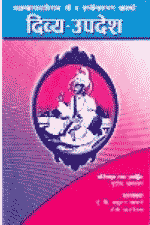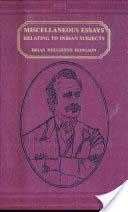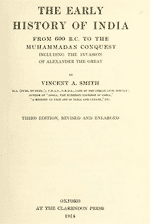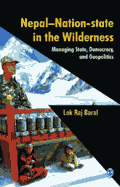
Prithvi Narayan Shah, Divya Upadesh (Possibly 1772-1775)
The Divya Upadesh (Divine Counsel) of Prithvi Narayan Shah the Great (1723–1775), the founder King of the unified Nepal, is probably the single most significant document which explains the Gorkha conquest and his contribution to the newly founded country.
The Divya Upadesh also explains Prithvi Narayan Shah’s accomplishment of the unification campaign and his counsel to the successors of his seats of power. These counsels dealt with the geo-political vulnerability of his newly unified country, and provided directions to the governing elite on how to pursue governance, nationalism, and foreign policy in order to sustain the country.
The exact date of Divya Upadesh, known in English as Divine Counsel, is not clear. It is stated in this document, that the Upadesh (Counsel) was given when Prithvi Narayan moved his capital from Nuwakot to Kathmandu, and had returned there for the last time. His conquest started with the A.D. 1744 seize of Nuwakot, which formed part of Kantipur principality at that time, and lied between Kathmandu and Gorkha, and the final conquest of Chaudandi and Bijaypur principalities shortly before his death in A.D. 1775. After Nuwakot, he took possession of major strategic points in the hills surrounding the Kathmandu Valley, and also took hold of its trade routes to Tibet and Muglan. He then managed to takeover Kathmandu valley and also unified many of the baisi and chaubisi principalities in the west and east into one nation.
Prithvi Narayan Shah died at the age of 52 before the Gorkhali expansionary wars and ambitions had subsided. Apparently, he could not quite organize the new country as effectively as he had conquested it. The Divya Upadesh was intended to infuse his knowledge and experience onto his successors towards this reform. It is clear in the beginning that Prithvi Narayan’s eyes were only on Kathmandu Valley and its wealth, and the threat of the other emperorsin the region expanding into the hill principalities. As the expansion continued, he learnt many new things about his newly founded kingdom, and his vision evolved gradually with both the love for the land and its people, and a genuine desire to maintain its power, prosperity and clout. Thus, he explains in the Divya Upadesh: “When an old man dies, his words die with him, so they say. What you who are gathered here will hear from me, pass on to your children, and they to ours; and this kingdom will endure.”
The Divya Upadesh encompasses most of the important issues for the newly unified country. In the national front, Prithvi Narayan emphasized that his country, which he finds to be a real Hindustana, is a commonwealth of all castes and tribes, and he believed in the government by the consent of the governed. Historical texts have made it apparent thathis preference was to appoint Biraj Bakheti as Kazi (Prime Minister) prior to the Gorkha conquest. However, he appointed Kalu Pande instead asserting the following justification: “He, with whom the people are pleased, he it is who is made kazi, so the shastras say. I consulted the wishes of the people and found that the people also wanted him. If Kalu Pande is made kazi, all the people will be pleased, I was advised.” His expression that, god willing, he would ordain arrangements similar of King Ram Shah, Jayasthiti Malla and Mahindra Malla in his kingdom demonstrated his conviction for fair and just rule. Further, emphasizing the role of justice, Prithvi Narayan proclaimed: “Let the king see that great justice is done. Let there be no injustice in our country. Justice is crippled when bribes are given and when bribes are taken.”
In the economic front, Prithvi Narayan was convinced of the significance of homespun products for the internal use and export of the local herbs abroad. He ordains: “Do not let the merchants of Hinusthana come up from the border. If the merchants of India come to our country, they will make the people destitute.” He then emphasizes keeping the money within the country itself: “If the citizens are wealthy, the country is strong. The king’s storehouse is his people.” Further, he even advises people not to drain out money on Hindustani singers and dancers. Whilst he acknowledged that there wasgreat pleasure in their melodies, he sought to highlight the possible ramification of local wealth drainage and espionage: “they also take away the secrets of your country and deceive the poor.” Moreover, he sought to turn the attention instead towards the Newar dancers of the three cities of Nepalas a suitable alternative:“This is quite all right. If anything is given to these, it remains inside your own country: If this is done, your country will be well protected.”
It is amazing to read the confidence of the unifier when he asserts his preparedness to withstandimminent Turk, Magar and the Mughal threat. The Turkish attack had come and gone, and the Mughals were not doing anything at that stage. Prithvi Narayan as the King of Magars hadalready nullified the Magar threat. As for the third, or the Mughal threat, he highlights his preparedness for imminent attack with following assertions: “I made the companies mixed, half with khukuris and half with rifles. With a company of 100 rifles, the work will be easy. With such a company of 100 rifles, I can resist 1,000 men. Placing one company at each fort, divide the ridge, maintain reserves.”
The Divya Upadesh maintains that “soldiers are the very marrow of the king” and if insurrections are to be avoided the king must do well with the army and the peasants. Prithvi Narayan has spent many words advising on the strategic matters of the unified country. Despite his claim of military prowess, he warns that “this country is like a gourd between two rocks. In terms of regional neighbours, Prithvi Narayan advises to maintain a treaty of friendship with the emperor of China. Further, he emphasizes the significance of a treaty of friendship with the emperor of the southern sea (the British Company in Hindustan). He is very clear in his advice that Nepal should not operate military initiatives against either of them. Its preparedness should only be for defensive wars. Proximately, he recalls Kasim Khan attacking Makwanpur, whom he defeated with a limited army of 120 khukuri-clad warriors. Similarly, he also recalls Hardy Sahib coming to attack Sindhuligadhi with three or four companies. Not only did he defeat Hardy Sahib and his army but also took possession of their weapons, i.e. flintlocks.
The Divya Upadesh shows how a conqueror eventually changed himself into a unifier. Many of the words and phrases of this document are not legible, or comprehensible. There are conflicting interpretations as well.





